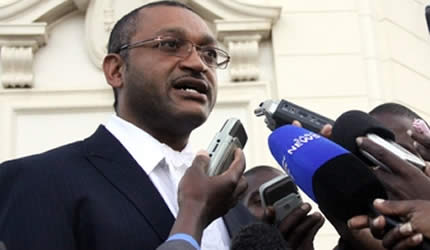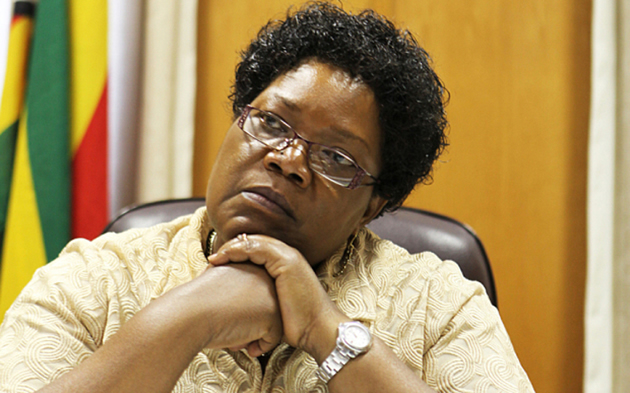SA’s ICC pull out bid hailed

Fidelis Munyoro Chief Court Reporter
THE announcement by South Africa’s ruling African National Congress (ANC) on Sunday that the country should consider pulling out of the discredited International Criminal Court (ICC), is welcome and should also get the authorities in Tshwane to reconsider recognising judgements from reactionary institutions like the defunct Sadc Tribunal that recently led to the auctioning of a Zimbabwean property in Cape Town, legal experts said yesterday.
Zimbabwe is not a signatory to the Rome Statute that created the ICC, but President Mugabe, who is also African Union chairman, is on record denouncing the court calling for the formation of an African Court of Justice. Since its formation in 2002 after the ratification of the Rome Statute by 60 countries, the ICC has indicted African presidents and army generals for alleged crimes against humanity, but never acted with equal zeal against Western leaders accused of committing similar crimes.
Head of the ANC’s international relations commission Mr Obed Bapela, told journalists of the decision after a meeting of the ruling party’s National General Council (NGC) on Sunday. “The NGC has just resolved that South Africa should withdraw from the International Criminal Court,” Mr Bapela told journalists.
He said the decision was made after the realisation that the ICC had lost its direction and was no longer pursuing its guiding principle.
Legal experts said the decision by the SA authorities had far reaching implications given that it was a major political and economic force on the continent.
‘’The resolution by the ANC NGC is welcome coming as it does on the heels of the auctioning of a Zimbabwean property in Cape Town due to a judgement that found in favour of legal costs for white former commercial farmers.
‘’The motive behind that case by the likes of Ben Freeth and the actions of the ICC are one and the same thing and we hope the South African authorities will also approach such judgements with the same scepticism,’’ Tatenda Hondo, an SA-based Zimbabwean lawyer said yesterday.
Legal expert Mr Misheck Hogwe said South Africa’s withdrawal from the ICC should trigger mass withdrawal by the developing world. “The withdrawal of South Africa from the ICC is likely to signal the withdrawal of many African and Third World members in general,” Mr Hogwe said.
“It is really a fundamental decision by South Africa and it will obviously have far reaching implications.” Mr Hogwe also said it was not surprising because the ICC in recent years failed to portray itself as a genuine international court and had instead allowed itself to be perceived as an instrument of use by Western bullies against African and developing world leaders.
Another legal expert Mr Terence Hussein, said the ANC was correct in demanding the country’s immediate withdrawal until countries such as the US also ratify the Rome Statute. He said SA due to its economic and strategic importance was required to play an active role in Africa, but its efforts were hampered by its membership of the ICC.
“Being part of the ICC has been an albatross around the neck of the South African government. However, its usually very good efforts have been torpedoed by its membership of the ICC,” said Mr Hussein. “(A) recent example is the embarrassing incident where private individuals funded by Western countries that are not ICC members managed to get a court order to arrest Omar Al Bashir, the sitting president of Sudan.
“Clearly the SA government cannot continue with such contradictions. We have a situation where Security Council members who are not party to the ICC bully and threaten small members to carry out their bidding.” Mr Tendai Toto also a lawyer described the decision by South Africa was proper given the fact that its sovereignty was under threat from the ICC irrespective of its overly rated constitutional democracy.
“Pulling out of the ICC by South Africa is one example of an African country that now realises the ills and evils of the institution it subscribed to,” he said. “This is also a reaction by South Africa after realising that the so-called world champions of democracy and the rule of law – Britain and the US are after all not members of the ICC.”
Another law expert Mr Farai Mutamangira said: “The decision by South Africa is long overdue because the record of the ICC speaks to a racially skewed justice system that does not see wrongs committed by European leaders and only seeks to punish African leaders.
“The ICC has remained an imperial weapon used to bludgeon African leaders that they do not like and against whom they cobble up charges of rights violations.”
The decision by South Africa’s ruling ANC party comes as President Jacob Zuma’s government faces censure for disregarding an ICC construed court order to arrest the Sudanese president when he entered the country for an AU Summit earlier this year.
President Al-Bashir, who has been accused of genocide and war crimes, visited South Africa in June and was allowed to leave despite a court order to detain him. In 2013, a number of AU member states threatened to pull out of the ICC in response to charges brought against Kenyan president Mr Uhuru Kenyatta and his deputy William Ruto.
The were accused of fuelling violence in the wake of the country’s 2007 presidential elections, in which more than 1 000 people were killed. There are 15 cases currently before the ICC, all of them against African nationals. There is every indication that the ICC is targeting African leaders, working to a script written in Washington, Paris and London.
The former President of Cote d’Ivoire, Laurent Gbagbo, was abducted at midnight and secretly taken to The Hague. Liberia’s former President, Charles Taylor, is serving a 50-year jail term in the United Kingdom after being convicted by the ICC. Muammar Gaddafi’s son Saif al-Islam, and Libya’s former intelligence chief were indicted before the court could establish the nature of their crimes.









Comments